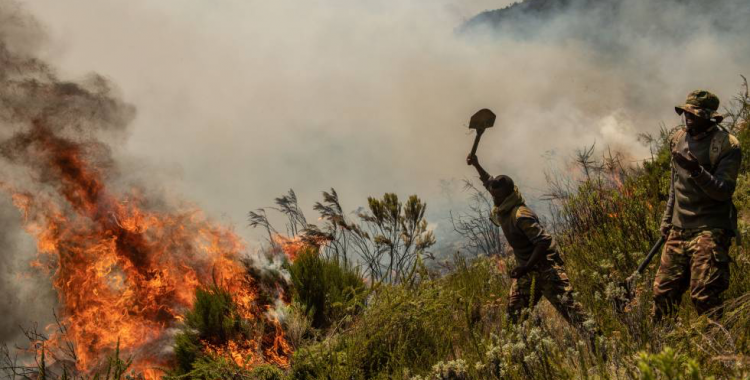The CNPFFS, provided for in the Base Law on Forests and Wild Fauna, is an advisory body for the holder of executive power in matters of coordinating measures to protect and exploit forests and wild fauna, in a country that records weekly reports of fires and deforestation carried out, above all, by farmers and hunters, situations that, according to authorities, put infrastructure and biodiversity sustainability at risk.
According to the presidential decree, consulted this Thursday by Lusa, this body arises out of the need to ensure the participation of social actors interested in the participatory management of forests and wildlife and to contribute to institutional coordination in the preparation of decisions, especially forestry and wildlife management.
Among its responsibilities are the promotion of prevention and control measures for all activities that contribute to the emission of carbon dioxide and the consequent worsening of climate change, in particular deforestation, uncontrolled burning and forest fires.
This body also proposes to promote measures on the production, transformation, circulation and commercialization of forestry and wildlife products, research, scientific investigation and extension in matters of forests and wildlife, as well as guide the adjustment of the National Policy on Forestry, Fauna Wild and Conservation Areas.
The CNPFFS, which will be chaired by João Lourenço, as holder of executive power, must have in its functional structure a plenary, national executive secretariat and provincial and municipal commissions.
Recently, journalist and activist Rafael Maques, director of the Maka Angola portal, said, citing the Global Forest Fire Information System, that the issue of fires is a problem and, in the second week of this month alone, forest fires devastated six percent of Angola's total land surface.
"This is the highest percentage of land scorched in the world, followed by our neighboring Democratic Republic of Congo, with 2.6 percent," said Rafael Marques in his article on fires.
In turn, Global Forest Watch, also cited by the researcher, revealed that, in this year 2024 alone, international monitoring recorded 109,349 forest fire alerts in Angola, estimating that, from 2001 to 2023, Angola lost close to four million hectares of tree cover, equivalent to seven percent of the total tree cover in the country.







